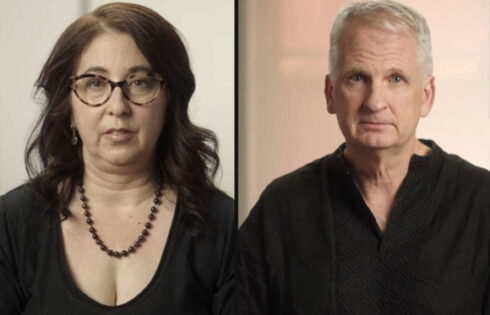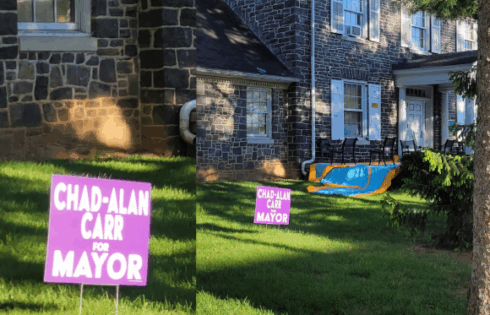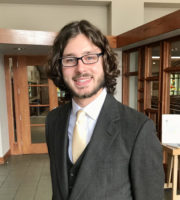
UPDATED
Experts provide advice on how students and academics can avoid citing bad research
Scientific research requires updated and accurate information — but retracted papers still find their way into scholarship, according to several experts who also provided ways to fix this problem.
Information scientist Jodi Schneider calls these papers “zombie studies,” because though they appeared dead, they continue to live on, infecting research in the future.
“Research publications are retracted for many reasons — plagiarism, fraud, and honest error to name a few,” Schneider, a professor at the University of Illinois Urbana-Champaign, wrote in an email to The College Fix.
“Explicitly marking the literature we can’t rely on is important,” she said. “People build on research all the time — to pilot new medical treatments, design new materials, develop advice about air pollution, and of course to think up new ideas or write new papers.”
“To get reliable results, we need to build on the best available knowledge. Retracting research cleans up the literature,” she said.
Flagging flawed research and retracted papers can be incredibly difficult to do as the retraction process is long and not all retractions are adequately documented.
“Different databases don’t have the same information about what is retracted! This makes it hard for people to be sure that they’re not citing retracted papers,” Schneider said. She gave a statistic from a paper she wrote in 2021: “94% of the post-retraction citations in biomedicine show no awareness of the retraction.”
Schneider also said the Communications of Retractions, Removals, and Expressions of Concern Working Group, or CREC, is working on a standard for how to inform readers of changes. She is a member of the group, which operates through the National Information Standards Organization.
She provided other tips for avoiding the citation of zombie research.
“When you’re looking for research, librarians are great partners,” Schneider said in an email to The Fix. “Consider what kinds of sources to use. For instance, individual research papers tell you what is going on at the forefront of the field.”
“Encyclopedias and handbooks digest the research and provide perspective. They’re good for different things,” she also said. “Not everything is written down and not everything ever written down is still easy to retrieve.”
The information scientist provided advice on how to think about research.
“It’s important to think about how knowledge is produced: who produced it, for what purpose, when,” she said. “Think about research as a PROCESS – we can’t rely utterly on the PRODUCT at any one given time but over time, the PROCESS of research leads to improvements in what we know on the whole.”
Problematic science papers alone total tens of thousands
Schneider, writing for The Hill, said there have been “40,000 scientific publications,” retracted since 1980. “They either contained errors, were based on outdated knowledge or were outright frauds,” she wrote. However, this number should be much larger according to the co-founder of Retraction Watch.
“It’s important to remember just how many papers that should be retracted aren’t,” Ivan Oransky said in a Zoom interview with The College Fix. “There are easily ten times as many papers that need to be retracted and haven’t been then there are that have been retracted.”
He is a medical doctor by training and teaches journalism at New York University.
If a researcher’s work is called into question, he should thank whoever raised the question and should take it seriously, Oransky advises.
“Science works best when people take that criticism seriously. They should do an analysis of work with those critiques in mind,” he told The Fix. “If they find a significant error, they should say publicly that they found this error, notify the journal, and retract the work.”
He warned against legal action when someone tries to correct a scholar’s work.
“They shouldn’t hire lawyers. A decent number of researchers seem to think that this is a good idea. I’ve seen very few cases where the researcher was completely right and was defamed,” Oransky said.
“The effect is not good for science,” he said. “It discourages other researchers from pointing out errors in papers.”
Like Schneider, Oransky said students should rely on good mentors. He also mentioned programs that can help. Retraction Watch entered into agreements first with research company Zotero and later with Crossref. It also works with Endnote.
“If you are a student you should develop a good mentorship or mentorships so that you have someone more experienced to sit and read papers with; this way you are not doing it on your own. Someone to help you figure things out.”
Editor’s note: A line that mistakenly described a research collaboration has been deleted.
MORE: Fired scholar’s disputed race research totals more than 3,000 citations
MORE: Former Stanford president retracts ‘groundbreaking’ Alzheimer’s research
IMAGE: Oleksandrbedenyuk/Canva
Like The College Fix on Facebook / Follow us on Twitter






Please join the conversation about our stories on Facebook, Twitter, Instagram, Reddit, MeWe, Rumble, Gab, Minds and Gettr.